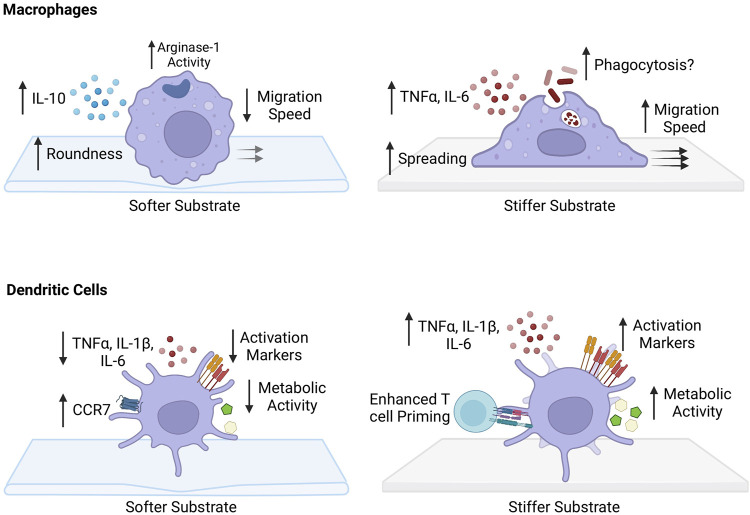FIGURE 2.
Impact of substrate stiffness on macrophages and dendritic cells. Softer substrates increase the roundness of macrophages. There is an increase PRM-like phenotype with an increase in IL-10 production and arginase-1 activity following IL-4 stimulation. Migration speed of macrophages grown on more pliant substrates is decreased and podosome-dependent. Macrophages cultured on stiffer substrates have a stretched morphology, with increased pro-inflammatory phenotype and secretion of pro-inflammatory cytokines TNF-α and IL-6. Phagocytosis capability has been suggested to increase, but still remains unclear. They acquire a fast, podosome-independent mode of migration after growth on stiffer surfaces. Dendritic cells (DCs) grown on softer substrates appear to have enhanced migratory capacity with increased expression of chemokine receptor 7 (CCR7). There is a decreased ability to produce pro-inflammatory cytokines TNF-α, IL-1β, and IL-6, and decrease in activation state. Metabolically, there is a decrease in glycolytic capacity. DCs cultured on stiffer substrates have greater ability to prime CD4+ and CD8+ T cells. They have increased capability to produce TNF-α, IL-1β, and IL-6 and have an enhanced activation state with increased expression of CD80/86 and CD40. Metabolically, they have increased glyocolytic capacity and express more intermediates of glycolysis.

